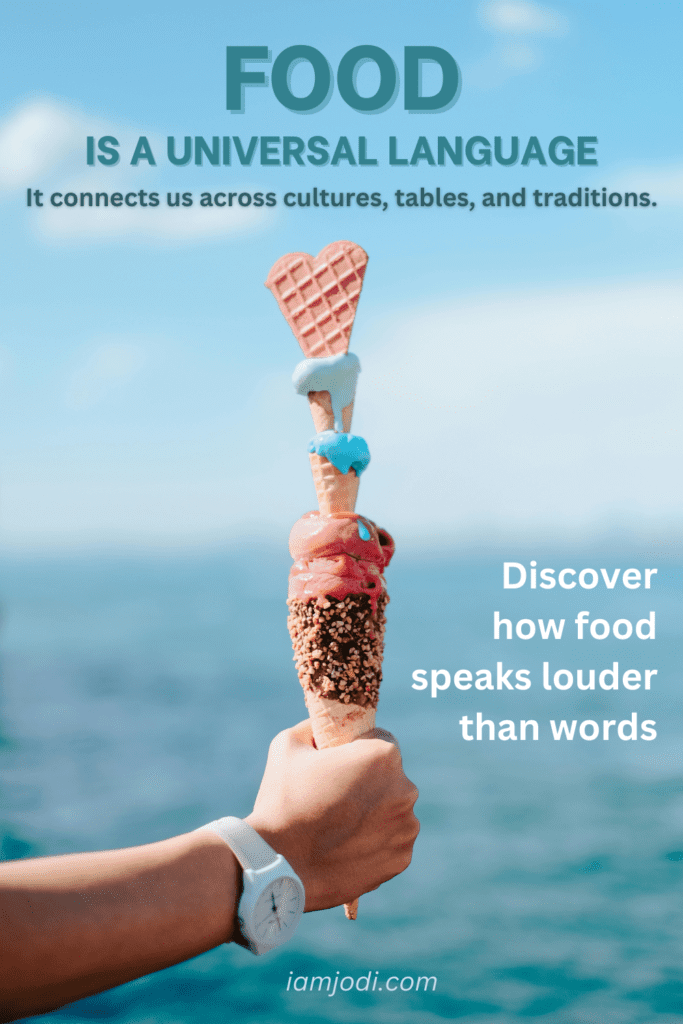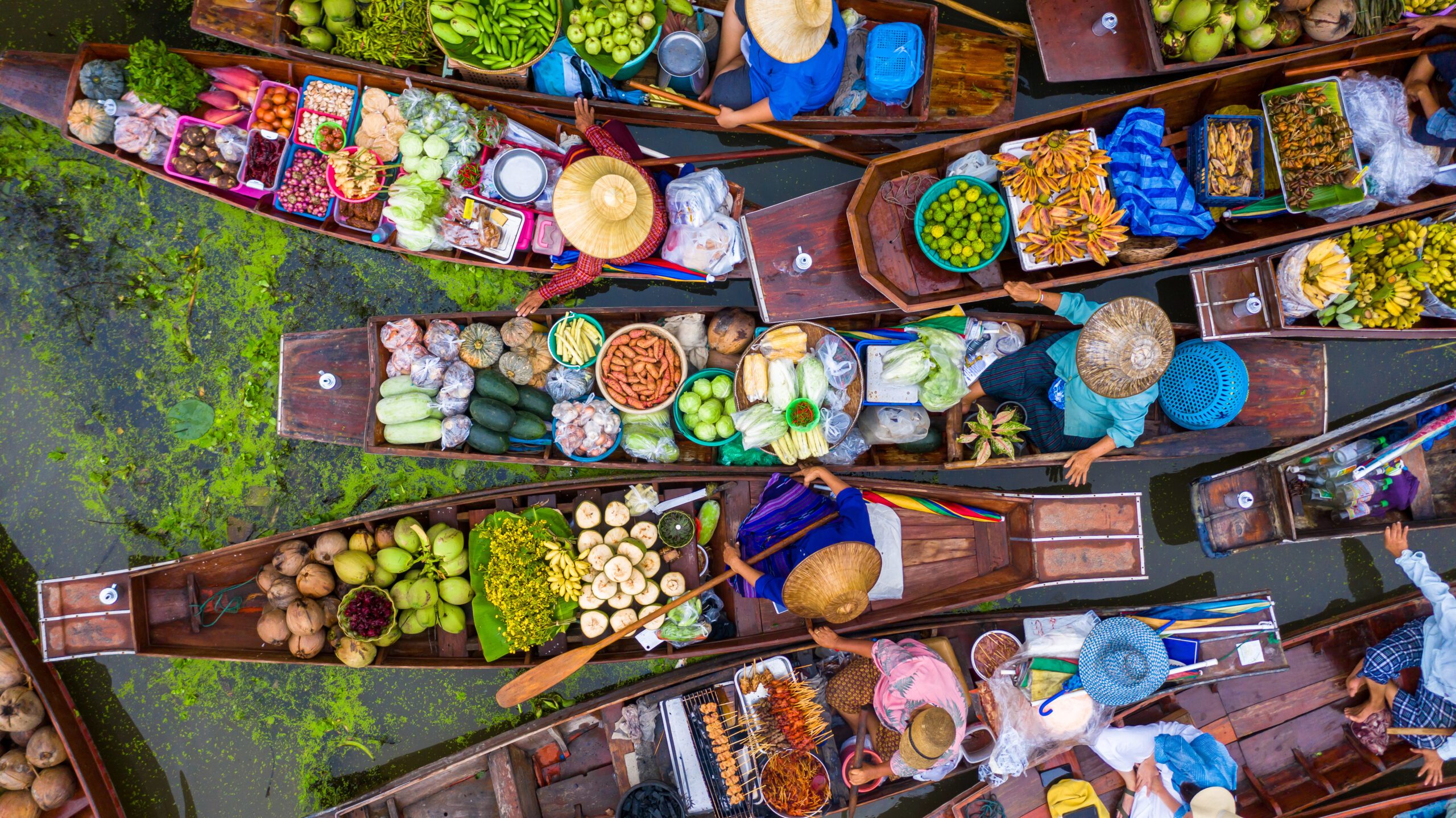
Why Food Is a Universal Language
(And the Only One I’m Fluent In)
The Multilingual Magic of a Meal
You ever notice how you don’t need a shared language to know when something tastes amazing? There’s this universal look—eyes widen, shoulders drop, someone makes an involuntary “mmm” that says more than Google Translate ever could. No subtitles necessary.
I’ve had entire meals with people I couldn’t have a full sentence with—and still felt more connected than I have on some first dates where we did speak the same language (and yet, somehow, not at all). Food skips the awkward small talk and gets right to the good stuff.
One of my favorite food memories is from Granada, Spain—sitting on a candlelit terrace in the Albaicín, watching the Alhambra glow under spotlights, letting the waiter bring us whatever he recommended. No menus. No translations. Just trust. Cheese fondue showed up. Wine showed up. Whatever that creamy dessert was? That showed up too. And somehow, without a shared language, everything about that night felt understood.
That’s the magic. Food doesn’t ask if you passed the grammar test. It just asks if you’re hungry. And when the answer is yes, it says, “Come sit. You’re welcome here.” This is why food is a universal language.
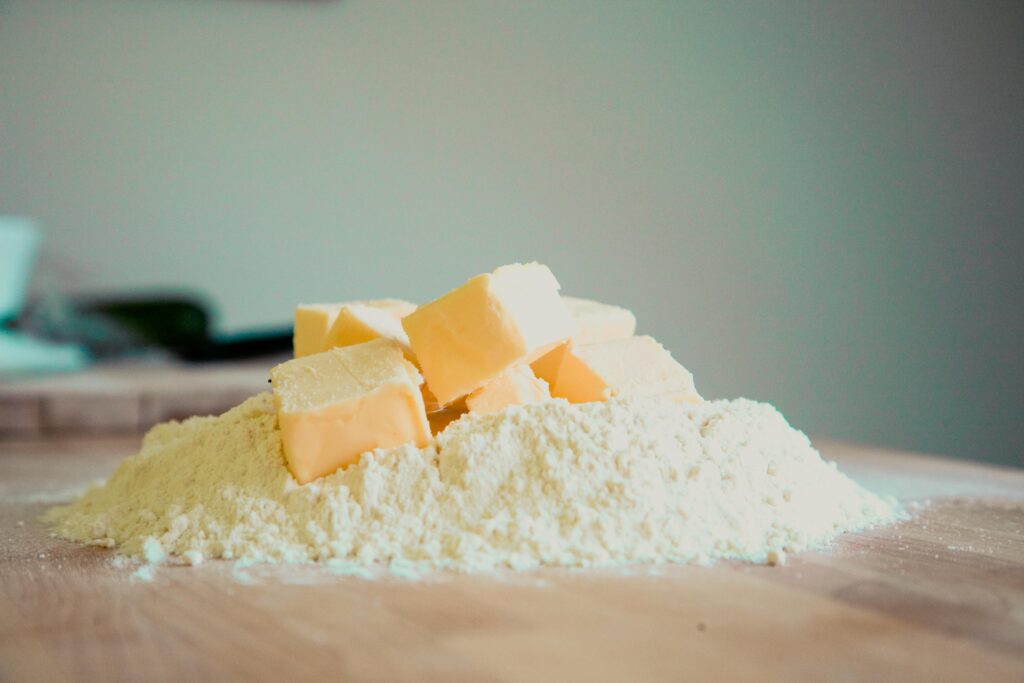
Family, Memory, and the Recipes That Raised Me (Sort Of)
I didn’t come from one of those families where food was everything. We didn’t gather around the table like a Norman Rockwell painting, passing heirloom recipes and having heart-to-hearts over Sunday sauce. But my mom always cooked—and she cooked well. There was always something warm on the stove, and even if food wasn’t the centerpiece, it was always there.
She taught me how to cook, mostly by instinct. Some of her recipes are scribbled down, sure—but others live only in her head, coming out in vague, slightly chaotic instructions like “just add a little of this” or “you’ll know it’s done when it smells right.” And somehow? She’s always right.
The first thing I ever made on my own was a cake in my Easy-Bake Oven. I remember being so excited… until I tasted it. It was terrible. And I remember knowing, even then, that food could—and should—taste better. Apparently, my palate had opinions before I could spell the word “palate.”
Now, I’m the one cooking for my family. They request dishes from me the way people request songs from a DJ. And I love it. Cooking isn’t just a chore or a checkbox—it’s something that brings me joy. There’s something deeply satisfying about feeding people well, about watching someone take a bite and immediately go quiet because it’s that good.
I might not have grown up with a family obsessed with food, but somewhere along the way, I became the person who makes sure the food is worth obsessing over.

Travel Taught Me This Language Best
If you really want to learn a language, go where it’s spoken. If you want to learn food? Go where it’s cooked.
Travel is what made food feel like a language I could actually speak. Not fluently, of course, I’ve ordered meals by accident, agreed to mystery dishes with a smile, and once picked something off a menu solely because it had the word “cheese” in it. Zero regrets.
Some of my most vivid travel memories aren’t of landmarks, they’re of meals. Not because they were fancy, but because they were true. Like that late-night tapas crawl in Spain, where the portions were small but the flavors were full-blown declarations of love. Or the time I made friends over grilled lobster and broken English at a beach shack on Starfish Beach in Bocas Del Toro, Panama—no sign, no menu, just smoke, salty air, and someone cooking lobster so fresh it might’ve waved at me an hour earlier. It was simple, perfect, and exactly the kind of meal that sticks with you longer than most relationships.
Food has this way of turning strangers into dinner companions and unfamiliar cities into second homes. It’s a passport stamp you don’t need to show at customs, but you’ll carry it with you forever.
And when the dish is that good? You don’t need to know the name. You just need a fork. Or fingers. No judgment.

Cooking Is My Dialect (And I’m Fluent in Butter)
Some people journal. Some people meditate. I cook.
Cooking is where I feel most grounded, creative, and let’s be honest—powerful. I can’t always find the right words, but I can find the right flavor combo. I can’t fix everything, but I can fix dinner.
These days, I’m the one feeding everyone—friends, family, whoever happens to be hovering near my kitchen when something starts to smell good. People make requests like I’m taking orders at a restaurant, and honestly? I kind of love it. There’s something deeply satisfying about knowing I made something that people don’t just like—they ask for it again.
And don’t get me started on butter. I’ve been called obsessed (accurate), and I’ve leaned all the way in. It’s the backbone of basically everything worth eating. I’ve got a butter-themed apron. A butter-themed Christmas tree. I might have a butter personality at this point. And I’m not even sorry.
I’m always experimenting—testing, tweaking, sometimes accidentally creating something amazing, and sometimes… not. But even when things flop, I learn something. And that’s what I love about it. Cooking is messy and forgiving, and somehow, it always manages to say what I can’t.
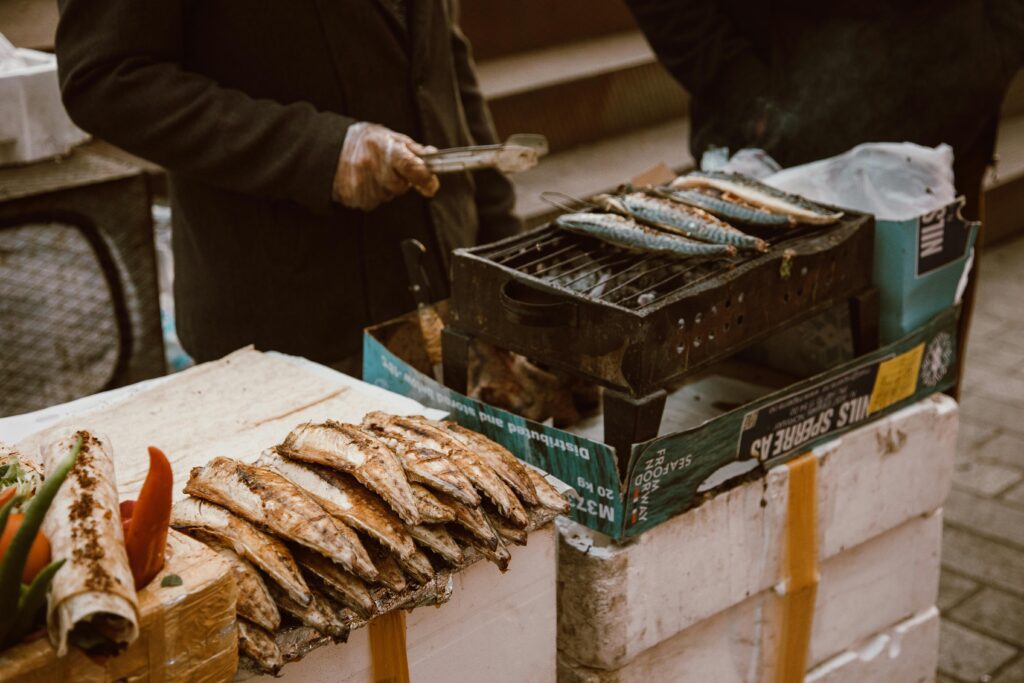
Food Around the World Is Its Own Adventure
If there’s one thing I’ve learned, it’s that food is never just food—it’s geography, history, culture, comfort, and chaos, all rolled into one bite.
Every country has its own way of saying “welcome,” and more often than not, it comes with a plate. I’ve had sweet breakfasts in Europe, spicy breakfasts in Central America, and breakfasts I genuinely questioned in airports. I’ve eaten late-night noodles from a sidewalk vendor and multi-course meals in places where I was wildly underdressed. And both were unforgettable.
What blows me away is how different ingredients, techniques, and traditions can be—yet somehow, they all end up speaking the same language: this matters here. Whether it’s tagine in Morocco, souvlaki in Greece, or street tacos that nearly made me cry in Mexico, food gives you a peek into what people care about, what brings them joy, and how they take care of each other.
And let’s be honest—sometimes the best thing you eat is the thing you almost didn’t order because it sounded weird. But that’s the thrill. Food lets you travel with your taste buds first. No guidebook required.
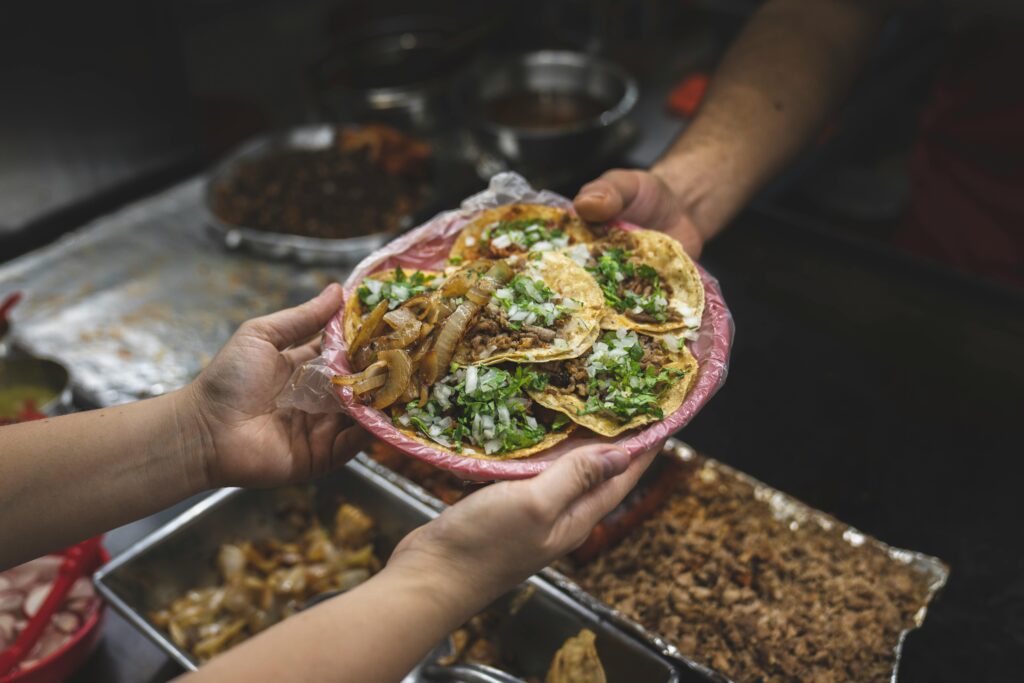
I May Not Speak Your Language, But I’ll Eat Your Food
Here’s the thing—I might not understand your words, but if you hand me a plate of something you love? I get it.
Food is the most generous invitation. It doesn’t care what passport you hold, how well you pronounce things, or whether you know which fork to use. It just says, “This matters to me. I want you to try it.” And that alone is its own kind of intimacy.
I’ve eaten things I couldn’t pronounce, things I wasn’t totally sure I wanted, and things I’ll never forget. I’ve said yes out of curiosity, respect, hunger, and okay—occasionally peer pressure. (Looking at you, mystery meat on a stick.) But I’ve never once regretted saying yes to someone else’s table.
And let’s be real—there’s a kind of vulnerability in sharing your food with someone. Whether it’s a dish passed down through generations or something you threw together because it’s what you had, offering that to another person is saying, “This is me. I hope you like it.”
So no, I don’t speak a lot of languages. But I’ve learned that showing up hungry, curious, and grateful is usually enough. Food does the rest.
And There You Have It, Food is a Universal Language
So yeah—food is my favorite language. The only one I’m fluent in, really. It’s messy, emotional, sometimes awkward, and almost always better shared. And whether I’m home in my own kitchen or halfway across the world at a plastic table with a grilled lobster I’ll dream about forever, it’s the one language that never fails me.
If you’ve ever had a life-changing bite, said yes to a dish you couldn’t pronounce, or fallen in love with a place because of what you ate there—you get it.
What’s the one meal that made you feel understood without saying a word? Drop it in the comments—I want to hear all about it.
